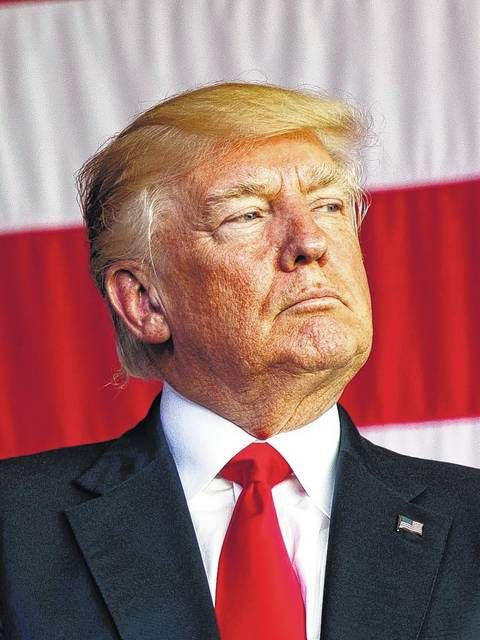Click here to subscribe today or Login.
We’re calling the White House this week and demanding to speak to the president.
We have a surefire way for Mr. Trump to save millions of dollars on private lawyers — he seems to be hiring them in bunches these days — and spare himself possibly years of frustration as the Russia election-meddling probes drag on.
The simple advice we would have for the commander in chief, if the White House switchboard would happen to patch us through: Mr. President, end this madness. Issue yourself a pardon for any crimes, such as obstruction of justice, that any special counsel may allege.
That way, we can stop wasting time on a “Nothing Burger” — as one person recently called it — and get back to the very serious business of running the country.
Now, before you roll off your couch and start laughing, please hear us out on this one.
First, the question most people asked when we bounced this idea off them: Does the president actually have the authority to pardon himself?
Answer: Yes. But it’s complicated.
The Constitution expressly states the president has the power to grant pardons and reprieves “for Offenses against the United States, except in Cases of Impeachment.”
So, if Trump got to the point where he was impeached by the House, there would be no pardon option.
But we are very far from that point.
Now, the complicated part.
According to a Washington Post analysis of the Trump self-pardon option, such a decision by the president would certainly be challenged in the courts due to the “vagueness” of the constitutional language and the highly unusual circumstance of a president pardoning himself. In fact, it’s never happened, although Richard Nixon considered it just before he resigned in 1974. (More on that later.)
The law professor the Post spoke to believes the Supreme Court would eventually nullify a pardon if Trump did it. He argues a pardon is “inherently something that you get from someone else,” not something you could give to yourself.
But the expert also noted no one knows for sure what the court might do.
The justices are supposed to be above partisan politics, but with the recent confirmation of Neil Gorsuch, there are more conservative thinkers on that particular bench.
So, would they let Trump get away with it?
We would argue they might. And why not?
No one has yet presented any proof Trump colluded with Russia during his campaign, or obstructed justice in any way to get the heat off his short-lived national security adviser, Lt. Gen. Michael Flynn.
That being the case, we say let Trump govern and see what he can do without being burdened by this distraction.
If folks don’t like the pardon and want to hold him accountable, they don’t even have to wait until 2020 to vote him out.
They can vote Democrat in the 2018 mid-terms and tilt Congress back to the left, effectively limiting what Trump might be able to accomplish.
Now, back to Nixon, who chose to resign rather than pardon himself or any high-ranking staffers, some of whom wound up in prison.
A month after Nixon left office, President Gerald Ford pardoned him for any potential crimes.
Of course, there was public outcry. But Ford made a well-reasoned argument, saying the Nixon issue was taking up too much of his time. He had to worry about managing the Cold War, the American economy and a host of other issues.
Trump could make the same argument today — his administration needs to be freed up to govern instead of focusing so many of its efforts on containing what the president has called a “witch hunt.”
One final thought: A self-pardon might seem like a far-fetched idea. But a reality star being president seemed pretty far-fetched about this time last year.
— Times Leader





